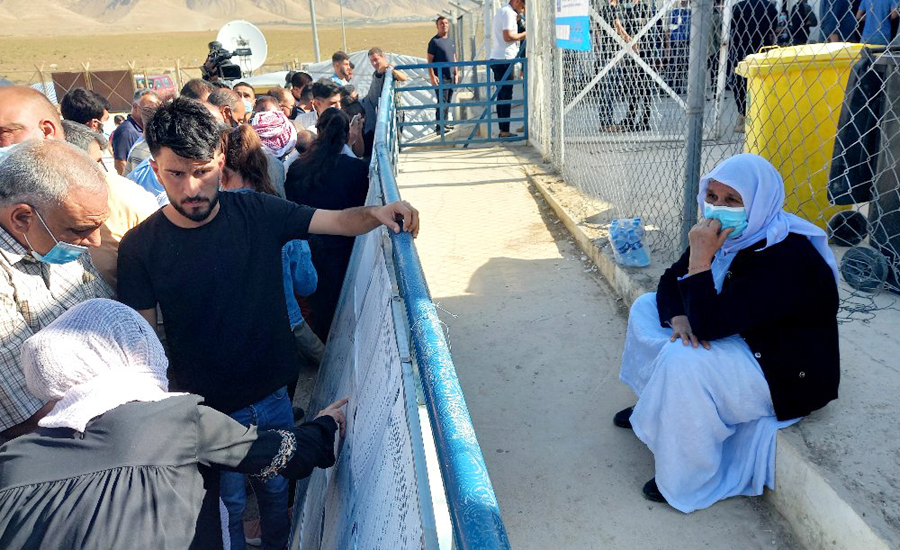The Iraqi Ministry of Migration and Displacement did not send to the semi-autonomous Kurdistan Regional Government KRG expenses for supplying the camps for the Internally Displaced Persons IDPs with electricity, in addition to the hundreds of billions of Iraqi Dinars it owes to the farmers whose lands were turned into IDP camps.
According to an agreement between the federal government and the Erbil-based KRG that dates back to the beginning of the displacement wave during the war against the Islamic State of Iraq and Syria ISIS, the regional government provides the IDP camps electricity, paid for by the Iraqi government, in addition to other basic services like water and other supplies.
Dayan Jaafar, Director of the Dohuk Office for the Joint Crisis Coordination Center JCC of the Ministry of Interior under the KRG assigned to supervise IDP camps, told (KirkukNow), "The Ministry of Electricity in the Kurdistan Regional Government informed us that electricity wages for the camps for the displaced in Dohuk amounted to 170 billion dinars ($11.5 million) and requested us to contact the Ministry of Immigration in order to send the required amount.”
"A while ago, we informed the Dohuk Governorate administration and the concerned authorities, including the Iraqi Ministry of Migration and Displacement, about that request, but we did not get a response," Jaafar added.
In addition to electricity wages, the Iraqi government owes hundreds of billions for the past five years to farmers
Dayan Jaafar stressed that "in addition to electricity wages, the Iraqi government owes hundreds of billions for the past five years to farmers who have established camps for displaced people on their lands, as well as water bills."
Since ISIS take over of large swathes of Iraq in June 2014 up to the end of the war against it in 2017, more than six million Iraqis have been displaced and migrated.
At present, out of a total of more than 1.1 million IDPs, over 600,000 tents in the IDP camps of the Kurdistan Region of Iraq KRI, the majority of them in Dohuk Northern Province, according to the statistics of the KRG and the International Organization for Migration IOM.
Jaafar pointed out that "it is the duty of the Iraqi government to pay the electricity wages, the rent of farmers' lands and the other requirements of the displaced... We are in an embarrassing situation and the farmers are asking us for their dues for the past five years."
Iraqi officials find it difficult for the current caretaker Iraqi government to undertake such a financial obligation.
Iskandar Muhammad Amin, director of the Iraqi Department of Migration and Displacement in Dohuk, told (KirkukNow), "We sent a letter to the Iraqi Ministry of Finance regarding farmers' entitlements, electricity and water wages. The Ministry of Immigration has done what it owes, but the Ministry of Finance has not disbursed the amount yet."
He pointed out that the government has distributed farmers' dues for only two years since the camps were established.
The head of the Parliamentary Committee for Migration and Displacement, Sherif Suleiman, who, according to him, followed up the case and was familiar with its details, has addressed Baghdad.
I do not imagine that the government can spend this amount at the present
“In fact, this issue is related to the federal government and the regional government, they should reach an agreement, because the amount of the amount is very large, and I do not imagine that the government can spend this amount at the present.”
"The approval of the budget and the failure to address some of the problems related to the file of the displaced are among the main reasons behind not spending that amount so far," he stressed.
"We will continue our efforts with the concerned authorities to solve the problem as soon as possible. This is a legitimate right of farmers and the regional government."
With the exception of Ninewa province, the Iraqi government closed the IDP camps in all other provinces as the IDPs returned to their hometowns, except for the 26 camps in the KRI which were maintained according to an understanding between Baghdad and Erbil, where the IDPs refuse to return to their homes for fragile security and lack of basic public services.





